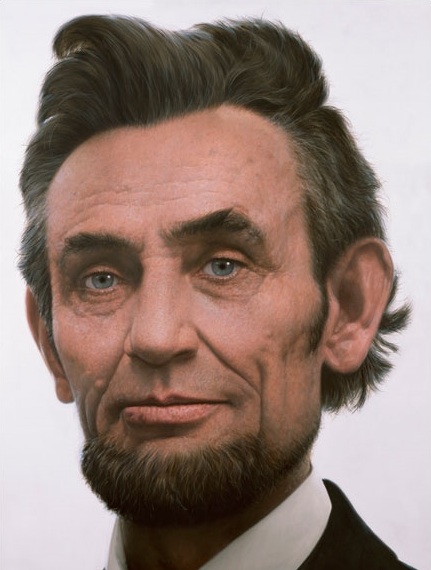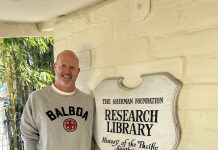Abraham Lincoln became my favorite president after I spent two semesters studying the Civil War during my undergraduate years at Cal State Long Beach.
Years later, I was asked to teach a graduate course in Educational Leadership for school administrators. I was given the flexibility to design the course curriculum, and I chose as one reading experience a book entitled “Lincoln on Leadership.” Who would have thought that a book about Lincoln and his leadership could be used to teach 21st century educators to lead in public schools?

Well, it could. And it’s time we consider applying some of Lincoln’s leadership strategies to move forward in our country and our city.
Two weekends ago I flew to Utah to attend a lecture series given yearly by the McCarthey Family Foundation: entitled “In Praise of Independent Journalism.” The family had been in the newspaper business since 1901. A member of the family is also a local resident, Maureen P. McCarthey. This year’s chosen speaker was Doris Kearns Goodwin, presidential historian and Pulitzer Prize-winning author.
Goodwin has worked for, studied and written about presidents for most of her life. She is fascinated with the many and varied leadership styles of the presidents she has written about and is able to draw conclusions about the most important qualities and characteristics of successful leaders.
Her book, “Team of Rivals: The Political Genius of Abraham Lincoln,” has topped the New York Times bestseller list, and won the 2006 Lincoln Prize and several other distinguished honors. Steven Spielberg’s latest film, “Lincoln,” is based on “Team of Rivals.”
She is also an outstanding speaker, researcher, and human being.
I was reminded throughout the weekend how much our country has endured and how important strong and determined leadership is to successful government at all levels. Her writings about the presidents demonstrate how much our world has changed since the first president.
Imagine how excited I was to find in my mail a new Time magazine with the cover story, “What Would Lincoln Do?” after returning home from the lecture. It’s a question that I also asked my master’s students studying leadership in education.
In the Q&A session following her talk, Kearns spoke of the importance of leaders being able to connect with the people they are leading. While all the presidents used different methods, based on their personalities and leadership styles, the one essential quality was the ability to communicate at every level of the human spirit and to be able to establish themselves as trustworthy and strong leaders.
Leaders of the past like Lincoln and Roosevelt campaigned by sitting outside in chairs, taking the train through cities, and connecting directly with people at town hall meetings, so they were accessible to people and could have a very personal experience with the people they hoped to lead and were leading.
Our national and local elections are over now, but there are several things that today’s leaders can incorporate from Lincoln’s presidency to move forward in running our country and cities.
To begin with, everyone is entitled to a voice, no matter what side they are on. No one should fear speaking up in a truly democratic society.
There were contentious and heated debates going on in both Newport Beach and Costa Mesa over charters as well as choosing new leaders. No matter your stance, citizen or elected leader, on present issues it is time to start solving problems and stop denigrating people’s choices and ideas.
Elected leaders and citizens need to consider three additional lessons from the Lincoln presidency. (1) Lincoln had the ability to see things through the eyes of his critics as well as his friends. (2) He had no use for grudges and he turned his enemies into allies. (3) He was a situational leader; he used multiple strategies to solve problems and enlisted the help of many – supporters and enemies – to support his leadership.
There was extreme polarization during Lincoln’s time, and there is now. The moderate center is the path we need our country and local politics to be on in order to succeed and prosper again.
The charter debates forced people to examine all sides of the impact of the measures. Elected leaders need to view this as an opportunity to see citizens engaged in their city, not as an uprising to be suppressed.
Elected leaders have a responsibility to ensure that different points of view are valued, not mocked – and so do citizens. This is not about winning and losing, it is about democracy and open government for all citizens. Let’s get back to work making our city and country a better place to live, work, and grow new productive citizens.
It is up to all of us to make democracy work.
That is my take.




